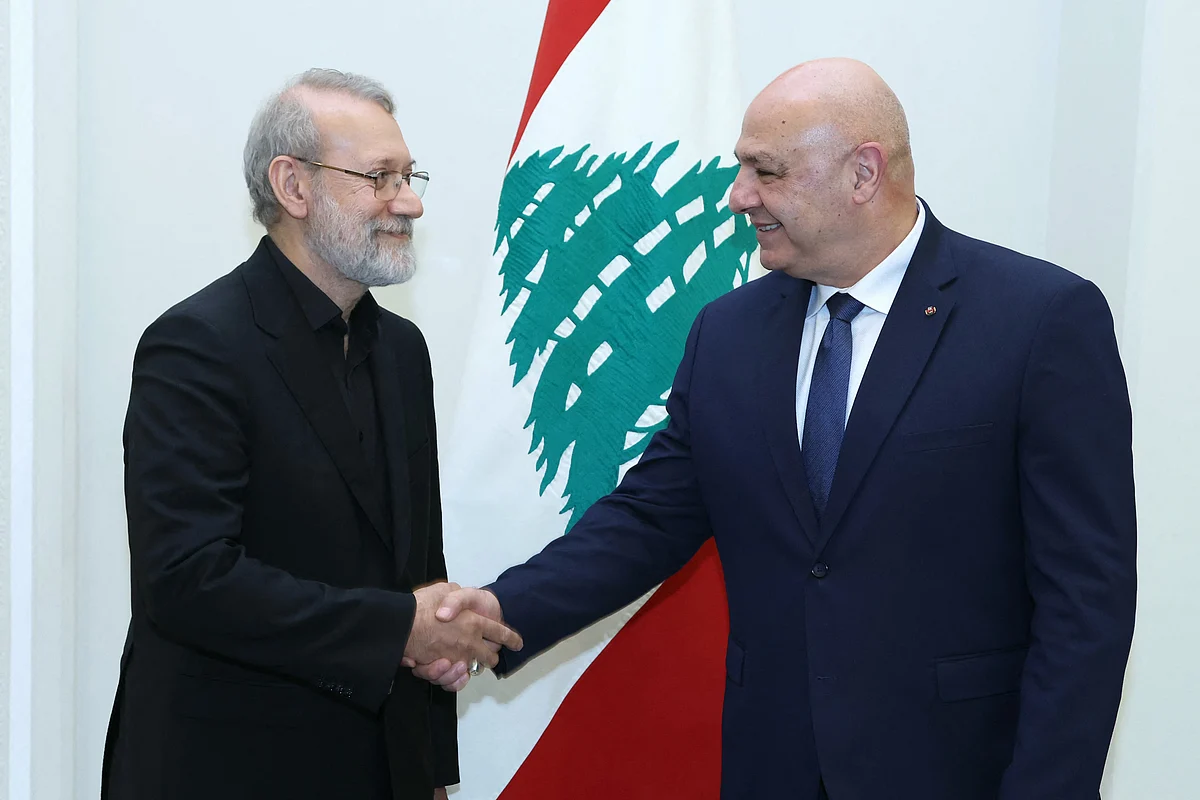Lebanon president tells Iran security chief he 'rejects all interference'
It is forbidden for anyone... to bear arms and to use foreign backing as leverage: Aoun

Beirut: Lebanese President Joseph Aoun told Iran's visiting security chief on Wednesday that he rejected any interference in the country's internal affairs, branding as "unconstructive" Iran's statements on plans to disarm Hezbollah.
Iran's Supreme National Security Council chief Ali Larijani's visit comes after the Lebanese government ordered the army to devise plans by the end of 2025 to disarm the Tehran-backed militant group Hezbollah.
Following his arrival in Beirut, Larijani vowed that his government would continue to provide support, after it expressed opposition to the disarmament plan.
"We reject any interference in our internal affairs," Aoun said, adding that "it is forbidden for anyone... to bear arms and to use foreign backing as leverage," according to a statement from the Lebanese presidency posted on X.
Iran and its so-called "axis of resistance" have suffered a series of blows in their long-running rivalry with Israel.
Iran and Israel went to war in June, with the United States stepping in briefly to bomb Iranian nuclear facilities.
Hezbollah suffered devastating losses, including the death of its leader Hassan Nasrallah, in a year of hostilities with Israel that ended with a November 2024 ceasefire.
A month later, Syria's president Bashar al-Assad was ousted, depriving Hezbollah of its main conduit for weapons and supplies from Iran.
Iran has declared its firm opposition to the Lebanese government's bid to disarm Hezbollah, while the movement itself has slammed the decision as a "grave sin".
In Beirut, Larijani said that no foreign power should give orders to Lebanon, adding that it was not Iran but the United States that was intervening.
Still, he implied Hezbollah should remain involved in state matters.
"Any decision that the Lebanese government makes in consultation with the resistance is respected by us," he said, while criticising the December deadline for the army to devise plans for Hezbollah's disarmament.
"The one who interferes in Lebanese affairs is the one who plans for you, gives you a timetable from thousands of kilometres away. We did not give you any plan."
Weakening grip
Before the war with Israel, Hezbollah was believed to be better armed than the Lebanese military.
It long maintained it had to keep its arsenal in order to defend Lebanon from attack, but critics accused it of using its weapons for political leverage.
In Beirut, Larijani vowed continued support.
"If... the Lebanese people are suffering, we in Iran will also feel this pain and we will stand by the dear people of Lebanon in all circumstances," Larijani told reporters.
As well as President Aoun and Prime Minister Nawaf Salam, Larijani was due to meet parliament speaker Nabih Berri, who is close to Hezbollah.
He was also expected to visit the grave of Nasrallah, who was killed in a massive Israeli bombing in south Beirut last year.
Hezbollah's grip on power has slipped since the ceasefire with Israel and the new Lebanese government, backed by the United States, has moved to further restrain it.
Iran's "axis of resistance" is a network of armed groups in the region, including Hamas in Gaza and Yemen's Huthi rebels, united in their opposition to Israel.
Sign up for the Daily Briefing
Get the latest news and updates straight to your inbox
Network Links
GN StoreDownload our app
© Al Nisr Publishing LLC 2026. All rights reserved.